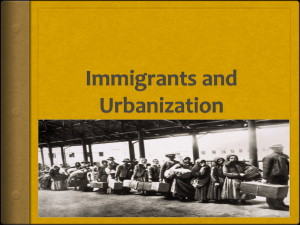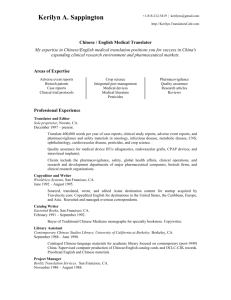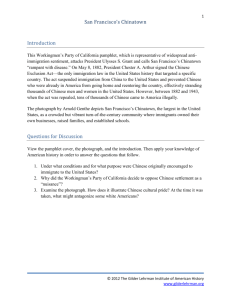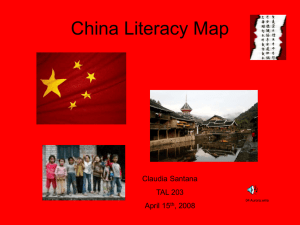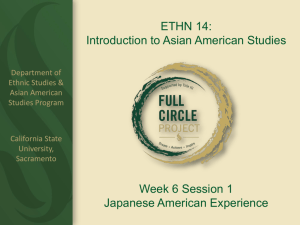Report of the Select Committee on Immigration
advertisement
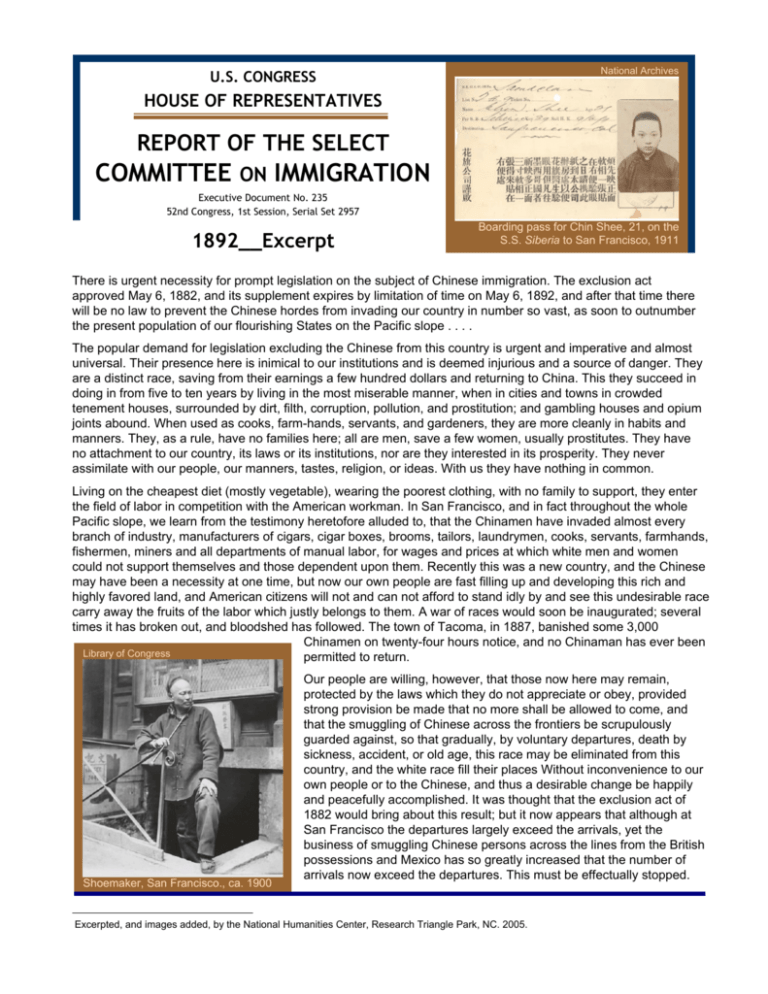
National Archives U.S. CONGRESS HOUSE OF REPRESENTATIVES REPORT OF THE SELECT COMMITTEE ON IMMIGRATION Executive Document No. 235 52nd Congress, 1st Session, Serial Set 2957 * 1892__Excerpt Boarding pass for Chin Shee, 21, on the S.S. Siberia to San Francisco, 1911 There is urgent necessity for prompt legislation on the subject of Chinese immigration. The exclusion act approved May 6, 1882, and its supplement expires by limitation of time on May 6, 1892, and after that time there will be no law to prevent the Chinese hordes from invading our country in number so vast, as soon to outnumber the present population of our flourishing States on the Pacific slope . . . . The popular demand for legislation excluding the Chinese from this country is urgent and imperative and almost universal. Their presence here is inimical to our institutions and is deemed injurious and a source of danger. They are a distinct race, saving from their earnings a few hundred dollars and returning to China. This they succeed in doing in from five to ten years by living in the most miserable manner, when in cities and towns in crowded tenement houses, surrounded by dirt, filth, corruption, pollution, and prostitution; and gambling houses and opium joints abound. When used as cooks, farm-hands, servants, and gardeners, they are more cleanly in habits and manners. They, as a rule, have no families here; all are men, save a few women, usually prostitutes. They have no attachment to our country, its laws or its institutions, nor are they interested in its prosperity. They never assimilate with our people, our manners, tastes, religion, or ideas. With us they have nothing in common. Living on the cheapest diet (mostly vegetable), wearing the poorest clothing, with no family to support, they enter the field of labor in competition with the American workman. In San Francisco, and in fact throughout the whole Pacific slope, we learn from the testimony heretofore alluded to, that the Chinamen have invaded almost every branch of industry, manufacturers of cigars, cigar boxes, brooms, tailors, laundrymen, cooks, servants, farmhands, fishermen, miners and all departments of manual labor, for wages and prices at which white men and women could not support themselves and those dependent upon them. Recently this was a new country, and the Chinese may have been a necessity at one time, but now our own people are fast filling up and developing this rich and highly favored land, and American citizens will not and can not afford to stand idly by and see this undesirable race carry away the fruits of the labor which justly belongs to them. A war of races would soon be inaugurated; several times it has broken out, and bloodshed has followed. The town of Tacoma, in 1887, banished some 3,000 Chinamen on twenty-four hours notice, and no Chinaman has ever been Library of Congress permitted to return. Shoemaker, San Francisco., ca. 1900 * Our people are willing, however, that those now here may remain, protected by the laws which they do not appreciate or obey, provided strong provision be made that no more shall be allowed to come, and that the smuggling of Chinese across the frontiers be scrupulously guarded against, so that gradually, by voluntary departures, death by sickness, accident, or old age, this race may be eliminated from this country, and the white race fill their places Without inconvenience to our own people or to the Chinese, and thus a desirable change be happily and peacefully accomplished. It was thought that the exclusion act of 1882 would bring about this result; but it now appears that although at San Francisco the departures largely exceed the arrivals, yet the business of smuggling Chinese persons across the lines from the British possessions and Mexico has so greatly increased that the number of arrivals now exceed the departures. This must be effectually stopped. Excerpted, and images added, by the National Humanities Center, Research Triangle Park, NC. 2005.
